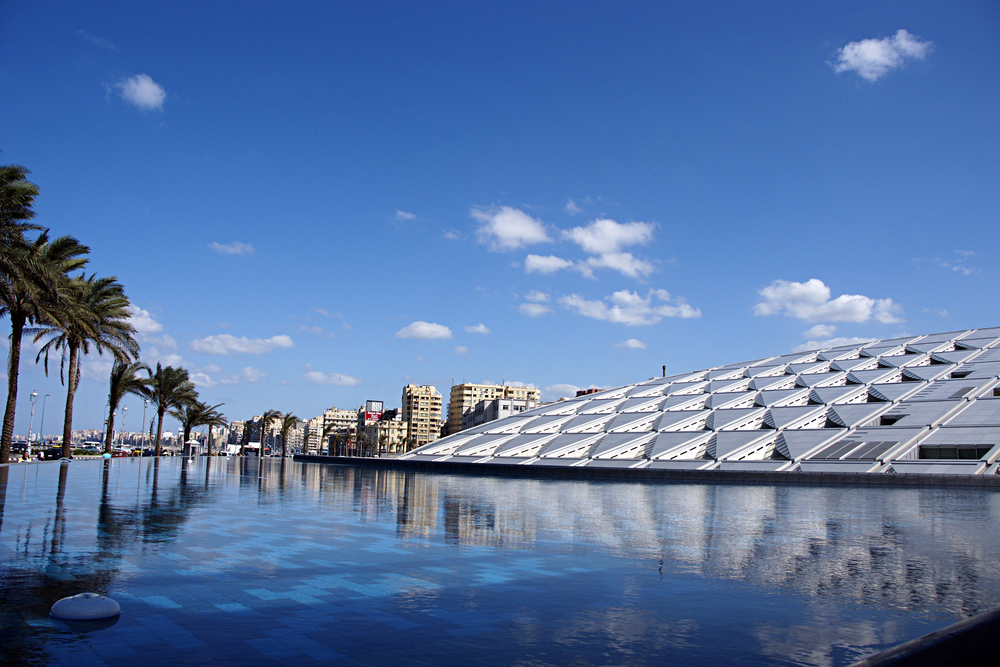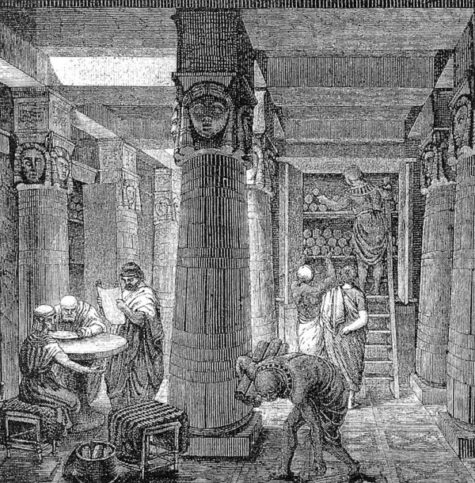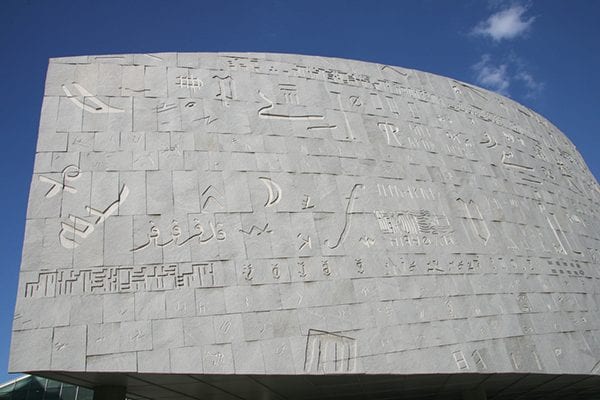The Great Libraries of Alexandria
The Great Libraries of Alexandria
The Great Libraries of Alexandria
-
Hannah
-
Hannah

Growing up in my family, books were of the utmost importance. They were a source of comfort, of escapism, of education; a common language through which my large family communicated. Books were in our blood: my father published a history of my family; my grandmother, a famous Egyptian feminist, published poetry. My house was part home, part library. We could never have enough books. When the political situation became difficult in Egypt and families were forced to emigrate, my father would come home with boxes full of abandoned books: like lost children, we took them under our wing.
Books mattered to us, and so too did our heritage: our roots in the country. For those who live in ancient, historic cities like Alexandria, the past is never far away. Thus I grew up in a city that will ever be a beating heart for those who treasure books: the site of one the most significant libraries in the history of humanity.
The Ancient Library of Alexandria was founded by Ptolemy I Soter (c.367–c.283 BC), successor of Alexander the Great, to collect all the world’s knowledge (yes, all!). As Edith Hall argues in The Meaning of the Library, it ‘was designed to preserve intact the memory of humankind’.
The library comprised a reading room, a dining room, meeting rooms, lecture halls, gardens and, of course, halls containing scroll after scroll after scroll (the books of the day). The exact number of books held at the library by the end of its days is unknown, but is estimated by historians to be as many as 400,000. These scrolls were laboriously copied by scribes from originals, in the relentless drive to fill the library with every single book in existence.

A 19th-century depiction of the Great Library (source)
The library created the model by which all modern universities were built: indeed, it was more than an archive, a place to catalogue and safeguard all writing; it was a place of learning for scholars. As part of the wider ‘Musaeum of Alexandria’, the mothers and fathers of all scholarly disciplines trod the halls of the library, from Euclid and Archimedes to Herophilus and Erasistratus. Many scholars lived at the library with their families.
Over time, the Library of Alexandria became a vast, influential library that pharaohs were proud of show off. Then came the Roman conquest of Egypt. So goes the story, when Julius Caesar was besieged at Alexandria in 48 BC, he set his own ships on fire, and the flames spread to the library and destroyed it. Whether the fire completely or only partially destroyed the library is a fact lost in the annals of history. Certainly, though, the damage was extensive enough to create the long-lasting symbolism of fire at the library as the ultimate destruction of knowledge and culture.
Above the shelves in the library which bore the scrolls was inscribed: The place of the cure of the soul. When such a place is destroyed, then, there is doubtlessly an impact on the soul. And that impact echoes to this day.
In 2002, the vast Bibliotheca Alexandrina was built in Alexandria by the sea, to be a centre of cultural excellence. It does not attempt to collect every work ever published, but it does hold so many works that it is already one of the largest libraries in the world, with shelf space for eight million books donated from collections around the world. Its design is quite beautiful, made of Aswan granite and inscribed with characters from 120 different human scripts.

While researching my novel Song of the Nile, I returned to Alexandria and I visited the library. I sat by the Mediterranean and gazed up at the modern edifice and I thought about the library that preceded it so long ago. Sitting in that place, I felt so proud and inspired, and I understood why it is that I love books – why books are so important to me and my family; why I never go anywhere without a book in my handbag; why from such an early age my dream was to be an author. I understood that this library, like the one before, really is ‘the place of the cure of the soul’, and that books are magical, transformational, wonderful items that are to be treasured.
No wonder I was inspired to write, and write! All of this passion and inspiration stirred by the libraries of Alexandria, past and present, found its way into Song of the Nile, which will be published next month.
